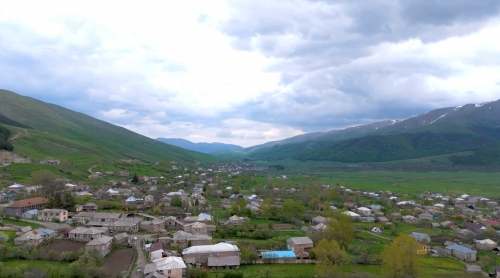

On June 27, 2025, a regional consultation was held at the COAF SMART Center in Debet, Lori Region, to assess community needs in implementing climate change mitigation and adaptation policies. The event brought together members of the National Assembly, local officials from Pambak, representatives from the United Nations Development Programme (UNDP), NGOs, experts, and youth leaders.
The consultation was part of the UNDP project “Fostering Responsive, Effective, Transparent, and Inclusive National Assembly of Armenia” (FORSETI), funded by the Governments of Sweden and Canada in cooperation with the Armenian Parliament.

The climate challenges in Margahovit village of tmPambak community and the corresponding mitigation measures were presented by Emilia Martirosyan, President of "Margahovit Youth Center" NGO.
As the primary issue, Emilia Martirosyan identified the absence of a sewage system:
“This leads to environmental pollution, poor sanitary-hygienic conditions, and contamination of the Aghstev River, which originates right in Margahovit.”
Margahovit is home to around 3,600 residents, whose main occupations include animal husbandry, agriculture, beekeeping, and tourism. However, in recent years, there has been noticeable degradation of pastures, more frequent flooding, and an increase in plant diseases. Over the last decade, temperatures have risen, and water availability has decreased significantly.
There are also accessibility challenges to remote pastures and inter-field roads. There is a need to assess soil quality, diagnose and treat plant diseases, and implement flood prevention measures.
During the consultation, Emilia Martirosyan made a proposal to members of parliament:
“When laws are amended, many responsibilities are placed on the community without assessing whether the community has the capacity to implement them.
If there are no specialists in the community, these responsibilities cannot be effectively planned or executed.
When drafting laws related to climate measures, let’s put an end to this practice and instead delegate the planning of such measures to appropriate specialized institutions.
I ask you to take this issue seriously.”

MP Meri Galstyan responded:
“I’m against full delegation. We must build the capacity of the community so that it has its own personnel - with initial support from the state budget and international donors. We will take this into account during the legislative process.”
August 01, 2025 at 13:30
